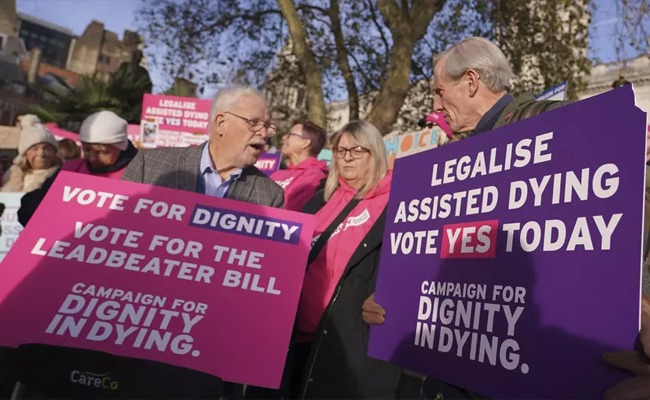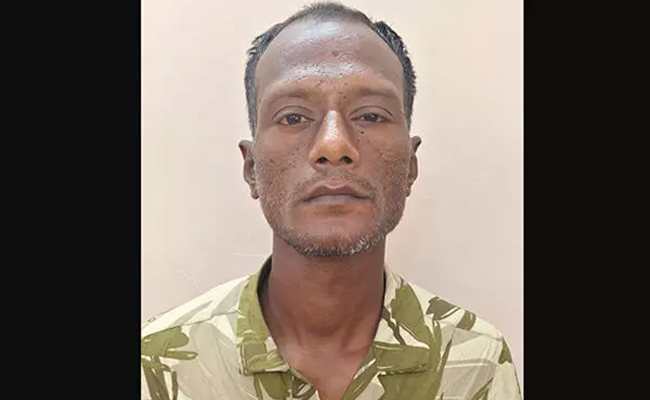London: The UK Parliament's House of Commons has voted in favour of legalising assisted dying, marking a significant step in the nation’s approach to end-of-life care. The bill, introduced by Kim Leadbeater, was passed with 330 votes to 275 following an extensive debate.
The proposed law allows terminally ill individuals with less than six months to live to opt for assisted dying, provided they are capable of making the decision independently. The process requires approval from two doctors and a High Court judge to ensure strict safeguards.
While the House of Lords and parliamentary committees must still review the legislation, the vote is seen as a critical milestone in the years-long campaign for assisted dying. If enacted, the UK will join countries like Canada, New Zealand, Spain, and several US states that have already legalised the practice.
The bill has sparked widespread debate, dividing lawmakers and the public. Proponents argue it ensures dignity for terminally ill patients, alleviating suffering and easing the burden on palliative care services. Esther Rantzen, a BBC presenter battling advanced lung cancer, urged Parliament to act, emphasising that the current law leaves patients with limited choices.
However, opponents have raised concerns about the adequacy of safeguards and potential pressure on patients to avoid being a burden to their families. Labour MP Rachael Maskell criticised the timing, citing the underfunded state of the National Health Service (NHS) and the need to prioritise improvements in palliative care.
The legislation aligns with the "Oregon model," which limits assisted dying to terminal illnesses, contrasting with broader laws in Switzerland, the Netherlands, and Canada. Assisted death remains a criminal offence in England and Wales, with penalties of up to 14 years imprisonment.
Let the Truth be known. If you read VB and like VB, please be a VB Supporter and Help us deliver the Truth to one and all.
Pilibhit (PTI): A 19-day-old elephant calf, brought from Bijnor, was placed under care at the Pilibhit Tiger Reserve (PTR) on Sunday, an official said and added that the calf got separated from its mother in the forest area of Bijnor.
The calf was born on December 2 in the Bijnor forest area and got separated from its mother shortly after birth, the official said.
The forest department made several attempts to reunite it with its mother, but without any success. To ensure the calf's safety and better care, it was decided to transfer it to the Pilibhit Tiger Reserve on the instructions of senior officials.
On Saturday, Deputy Director Manish Singh received the calf. Special arrangements have been made in the reserve for its care. It has been kept in a safe and clean environment to provide it with a natural setting and protect it from external noise and disturbances.
Singh told reporters that raising an 19-day-old calf is challenging.
It requires a special diet as a substitute for mother's milk and constant monitoring.
He said a special team has been formed to provide 24-hour care. Since the calf is very young, it is being cared for like a newborn baby.
According to Singh, the primary responsibility for monitoring the calf's health has been entrusted to PTR's veterinarian, Dr Daksh Gangwar. Under his supervision, a complete record of the calf's health checkups, diet, and body temperature is being maintained. The team is ensuring that the calf does not contract any infection.





